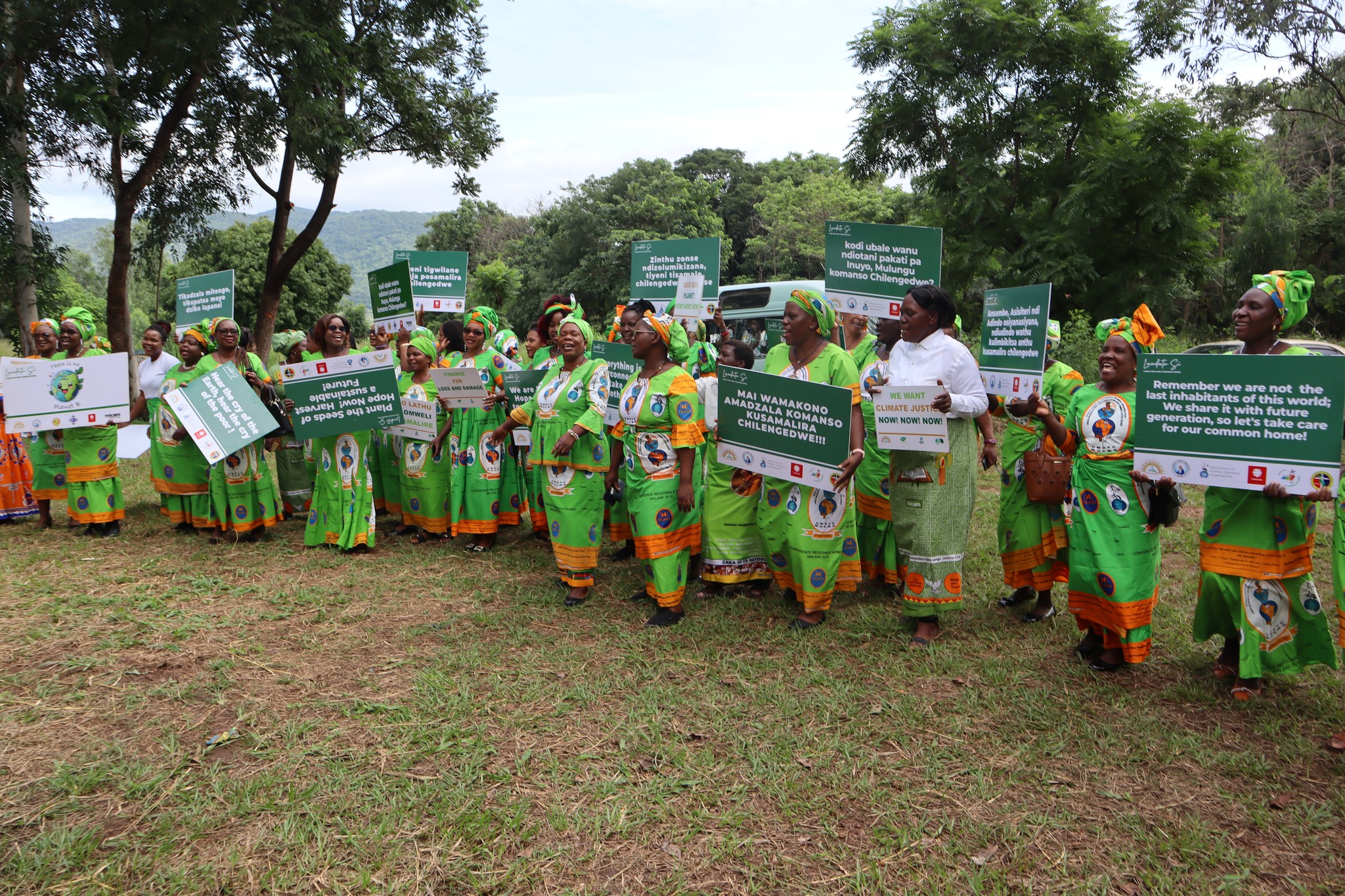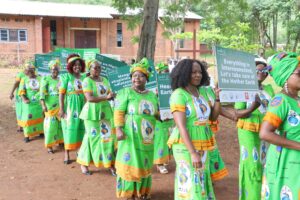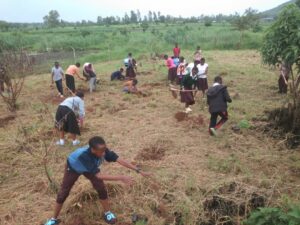
“Remember we are not the last inhabitants of this world; we share it with future generations, so let’s take care of our common home”
Last week, with joy and song, a group of women holding placards with the Catholic Women Association and World Union of Catholic Women’s Organisation (WUCWO) in Zomba, Malawi joined forces with the Jesuit Centre for Ecology & Development to inspire communities to act on land conservation and to care for their local environments.
Climate change isn’t news to anyone, but it is important that all of us do not lose hope – that we realize that there is still time to turn the tide and amend the mistakes and harm done to our natural world.

Women leaders in advocacy for wildlife protection & Laudato Si
World Wildlife Day is celebrated annually on March 3rd and on a global stage it is about collaborative efforts to protect our natural environments.
According to the United Nations:
‘With more than 1 million species now estimated to be threatened with extinction innovative finance for wildlife conservation has never been more urgent and since over half of the world’s gross domestic product (GDP) is dependent on nature, making biodiversity loss an increasing threat to financial stability and livelihoods (UN, 2025).
This year’s theme is titled ‘Investing in People and Planet’ – this is crucial as any efforts to protect both plants and animals can’t happen if the interconnectedness of how people relate and interact with nature is ignored.
Solutions to prevent soil erosion, for example, will be unsuccessful if farmers, especially small-scale and the marginalised, aren’t a part of the conversation – which is why fostering collaboration across different stakeholders is so important keeping in mind the inequalities that limit people’s options.
Hear the cry of the Earth, hear the cry of the poor!
Partnered with the Jesuit Centre for Ecology and Development (JCED), the Tasinth Mlimi project, funded by Misean Cara, is focused on building resilience in vulnerable communities by way of improving food security whilst building grassroot knowledge of sustainable farming practices.
If climate solutions burden already struggling communities then any effort to protect our environment will fail to launch.
With JCED, we are supporting vulnerable communities, often suffering the effects of climate change the most, and doing so in ways that enrich their lives and work hand in hand with their needs and means.

Students tree planting in school grounds in Kasungu.
A big part of the project is to tackle deforestation which is a terrible problem in Malawi.
Tree-planting is a major solution not only by way of combating global warming and diversifying ecosystems but also creating new income streams for farmers, strengthening livelihoods and tackling food insecurity.
JCED continues to build a vibrant and energizing movement across the country inspiring all generations to join in various ways for climate action.
This month, 6 schools (Loyola, Kasungu Seco, Kamwala, Chitete, St. Joseph’s, and Tchapa) begun planting trees, which they had raised from seedlings, with the help of learners, teachers, parents, and community leaders.
Similar to ‘Green schools’ in Ireland, the schools we support are building ecological skills to children of all ages – instilling in them the knowledge and awareness to protect their local environments and care for our common home.
For more on JCED and our other climate action projects, click here to find out more.

